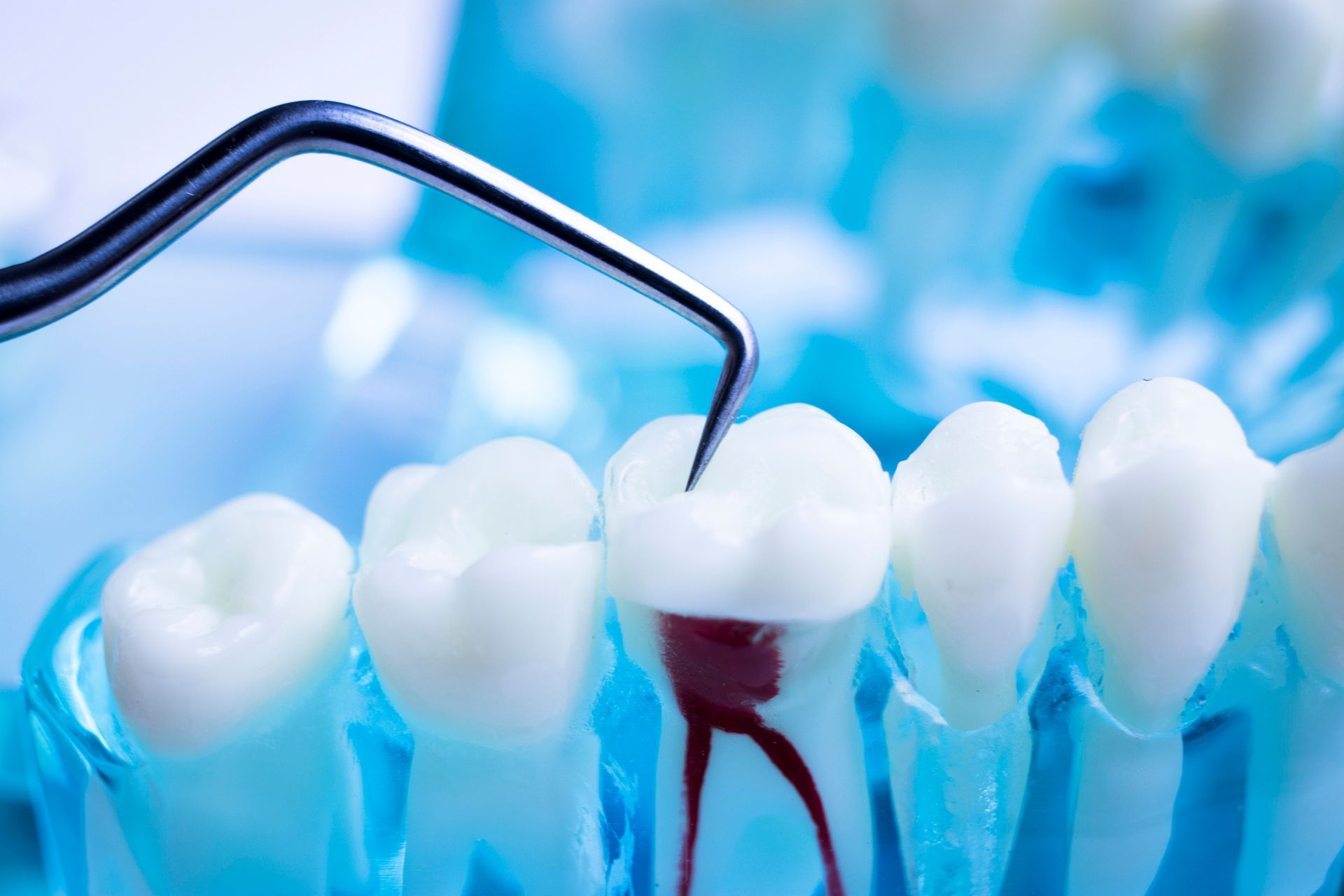ENDODONTICS / Root Canals
Root canal therapy is a dental treatment designed to eliminate infection, relieve pain, and preserve the structure of a tooth that has been compromised by deep decay, trauma, or infection. The procedure involves removing infected or damaged tissue from within the tooth's pulp chamber and root canals, cleaning and disinfecting the area, and sealing it to prevent further infection.
Procedure
- Diagnosis and Examination: The dentist begins by examining the tooth and taking X-rays to assess the extent of damage and determine if root canal therapy is necessary. Symptoms such as severe toothache, sensitivity to hot or cold, swelling, or a pimple on the gum may indicate the need for root canal treatment.
- Anesthesia: Local anesthesia is administered to ensure the patient's comfort throughout the procedure. Once the tooth and surrounding area are numb, the dentist can proceed with the treatment.
- Accessing the Pulp: The dentist creates a small opening in the crown of the tooth to access the pulp chamber and root canals. Special instruments are used to carefully remove the infected or damaged pulp tissue and thoroughly clean the inside of the tooth.
- Shaping and Disinfection: The root canals are shaped to facilitate the placement of filling material and thoroughly disinfected to eliminate bacteria and prevent reinfection.
- Filling and Sealing: After the canals are cleaned and shaped, they are filled with a biocompatible material called gutta-percha. The access opening is sealed with a temporary or permanent filling to prevent bacteria from re-entering the tooth.
- Restoration:
In many cases, a tooth that has undergone root canal therapy will require additional restoration to strengthen and protect it. This may involve placing a dental crown over the treated tooth to restore its function, appearance, and strength.
Benefits:
- Preservation of Natural Teeth: Root canal therapy allows patients to retain their natural teeth, avoiding the need for extraction and subsequent replacement with artificial alternatives.
- Pain Relief: By removing infected tissue and alleviating pressure within the tooth, root canal therapy effectively relieves toothache and discomfort associated with dental infections.
- Prevention of Spread of Infection: Root canal therapy removes bacteria and infected tissue from within the tooth, preventing the spread of infection to surrounding teeth and tissues.
- Restoration of Function and Aesthetics: Following root canal therapy and restoration with a dental crown, the treated tooth can function normally and blend seamlessly with the natural dentition, restoring the patient's ability to bite, chew, and smile confidently.
CONTACT INFORMATION
Telephone: (952) 920-9579
Fax: (952) 920-9298
E-mail: info@interlachendental.com
Address: 5101 Vernon Ave, Edina, MN 55436
HOURS OF OPERATION
- Mon - Thu
- -
- Friday
- -
- Sat - Sun
- Closed
PAYMENT OPTIONS



















Content, including images, displayed on this website is protected by copyright laws. Downloading, republication, retransmission or reproduction of content on this website is strictly prohibited. Terms of Use
| Privacy Policy








